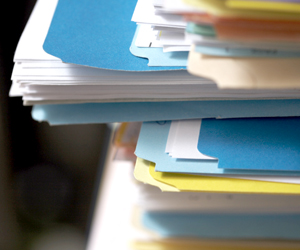 June 9, 2015 – A state appeals court has ruled that writings created by employees during a public school district investigation are not subject to disclosure as public records, denying a local newspaper’s request that the “notes” be released.
June 9, 2015 – A state appeals court has ruled that writings created by employees during a public school district investigation are not subject to disclosure as public records, denying a local newspaper’s request that the “notes” be released.
The Voice of Wisconsin Rapids requested documents from the Wisconsin Rapids Public School District in relation to allegations that the district’s athletic program engaged in misconduct. District employees launched an investigation into the allegations, conducting interviews and taking notes associated with the interviews.
The newspaper sought those investigatory notes under the state’s public records law, Wis. Stat. section 19.35, which allows anyone to request public “records,” including records created and maintained by school districts. The district denied the request.
The newspaper filed a lawsuit to compel disclosure, but a circuit court judge in Wood County ruled that the particular documents requested were not subject to disclosure.
The court’s decision was based on the definition of “record” in the public records law, section 19.32(2), which excludes “notes … prepared for the originator’s personal use.” The judge made this decision after an in camera inspection of the documents.
In The Voice of Wisconsin Rapids LLC v. Wisconsin Rapids Public School District, 2014AP1256 (June 4, 2015), a three-judge panel for the District IV Court of Appeals affirmed, concluding that the records sought were “notes” not subject to disclosure.
“We have inspected the sealed record containing the documents and we cannot think of a more suitable word to describe how these documents consistently appear than ‘notes,’ for the same reasons given by the circuit court,” wrote Judge Brian Blanchard.
The panel noted that the documents were mostly handwritten, somewhat illegible, and included post-it notes and telephone message slips. The fragmented, informal writing appeared to be generated for personal use by the authors, the court noted.
“[W]itness testimony included in the discovery materials available to the circuit court consistently describes creation of these documents as a note-taking process,” Judge Blanchard wrote. “[B]ased on the witness testimony, we construe these to have been in the nature of notes, which were created for and used by the originators as part of their preparation for, or as part of their processing after, interviews that they conducted.”
Calling it the “personal use exception,” the panel rejected the newspaper’s claim that the exception cannot apply when the content “has relevance to a government function.”
The panel found persuasive a 1988 attorney general opinion “that is directly on point and diametrically contradicts the interpretation advanced by the newspaper.”
The attorney general opinion (77 Wis. Op. Att’y Gen. 100) states that material would not be subject to public records requests “where a person takes notes for the sole purpose of refreshing his or her recollection at a later time” but would not be excluded if “distributed to others for the purpose of communicating information or if notes are retained for the purpose of memorializing agency activity. …”
“[T]he newspaper points to no evidence that the notes were retained for the purpose of establishing any formal position or action taken by the district, as opposed to being retained by the originators to refresh their memories, as they testified,” wrote Judge Blanchard. He noted that prior decisions support the 1988 attorney general opinion, including one involving notes by a circuit court judge related to a sentencing decision.
“While some individual notations may represent tentative conclusions on issues of consequence in the investigation, none of the notes individually or collectively appear to establish formal positions or actions of the district,” Judge Blanchard explained.
